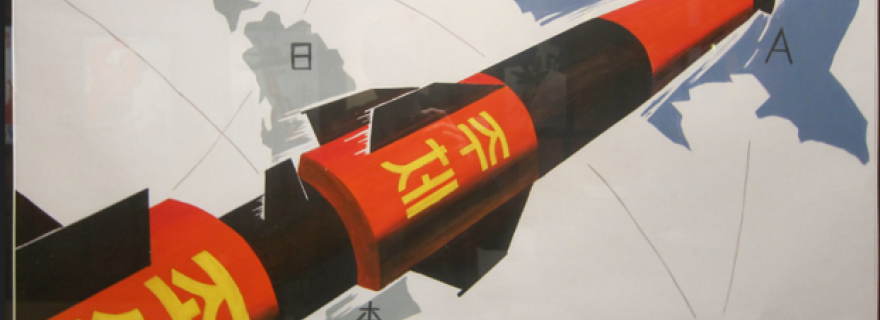Missiles over Pyongyang: Considering the Internal Dynamics of Authoritarian Regimes
North Korea is not a monolith. Media outlets often portray it as a strongman dictatorial regime commanding absolute obedience. Instead it should be conceived of as a stratified coalition of organisations and individuals competing for resources and political influence. Academics can analyse these competing agendas to better understand the rationale behind security priorities and policy decisions that, at first, may appear erratic. This luxury is not always available, and academics are forced to assume the aforementioned strongman stereotype or wait for testimony from high-profile defectors on the internal political dynamics of the state bureaucracy, assuming these are still contemporary and relevant.
In lieu of a comprehensive perspective on North Korea, concepts such as juche (‘self-reliance’), songbun (domestic class-system), or songun (military first) are taken from their original contexts to ‘fill the gaps’ and piece together an alien and inconceivable rationality for its bellicosity. This article argues North Korea operates by similar logics to other authoritarian states: leaders and their support base act to secure their positions, preventing violent challenges from rivals (i.e. coup-proofing). This author will engage in speculation by asserting the nuclear weapon programmes are part of a broader coup-proofing strategy.
Coup-Proofing Against Challengers
In authoritarian regimes, leaders protect against military coups by limiting the means to commit a coup or by installing parallel, competing military structures such as a paramilitary. Contrary to intuition, coup-proofing is the preferred strategy when the risk of a coup is moderate-to-low. If the coup risk is high, with rivals having the means at their disposal, then the chance of the coup-proofing measure succeeding is lower. Thus, in times of relative stability, leaders will secure their position by depriving rivals in the military of their power (see Sudduht below).
The Korean People’s Army (KPA) has enjoyed a considerable portion of the state budget. In 2019, the US State Department reported the KPA received an average of $4 billion per annum in funding, 23% of the $17 billion nominal GDP. KPA command, once under the Party, was co-opted by Kim Jong Il to ensure his survival. Upon succession, Kim dismissed the Central Military Commission and superseded its functions with the National Defence Commission (NDC) in 1998. The NDC assumed parallel state functions from the Party and Cabinet, creating new departments for Administration, Policy, and Foreign Affairs. These departments were packed with high-ranking Generals retiring from the KPA, ensuring loyalty and removing the tools necessary to enact a coup away from rivals in the Party. He maintained the loyalty of NDC Generals via a spoiling patronage network, providing foreign and extravagant gifts, as well as an illustrious career, in exchange for support. This spoiling would continue through the post-Soviet economic collapse.
The Role of the KPA – from Protection to Production
When the state-controlled economy collapsed, overseas public enterprises were founded. Generated revenue from exports bolstered the patronage network, channelling through Kim and the NDC, with what remains being distributed to the Party. Among them, labour export companies, such as Red Shield and Cheonwoongsan Trading, were the most successful. High-ranking KPA officials held executive positions, serving their NDC patrons, as the labour is sourced from the military, an ideal labour force due to wage-free conscription. A consequence of these overseas enterprises’ success was a burgeoning management class with independent capital and political power. This has led to clashes before, such as with Kim Jong Un’s uncle Jang Seong Thaek.
The application of this dynamic to Kim Jong Un’s pursuit of nuclear weaponry admittedly lacks clear support to string a coherent narrative together. Conventional wisdom interprets missile tests as having a single purpose: a bargaining chip against the United States to pair back military presence and to relieve the regime of international sanctions. A further development of this claims the North Korean nuclear missile programme is developed for international prestige, status, and recognition to show the success of its oft-peddled Juche ideology. Although speeches from the first nuclear test in 2006 and recently in the 7th Workers' Party Congress support this submission, the connotations for this status are that demands are taken more seriously.
However, these explanations assume North Korea is a unitary actor. Decisions such as the drastic re-centralisation of the economy and appointing Kim Jong Gwan as Defence Minister rebut this claim and are undoubtedly based in regime survival. The former decision will strain relations with the managerial and elite class based in the KPA. The latter decision suggests the KPA will be used extensively in construction moving forward, away from the halls of power. By completing a ground and sea-based nuclear deterrence, Kim Jong Un could withdraw funding for conventional arms, equipment and troops, thus depriving the means to enact a coup. In its place, the party can establish a praetorian guard loyal exclusively to the inner circle.
Conclusion
When analysing the security decisions of North Korea, speculation must be embraced, verging on even giving “the benefit of the doubt”. North Korea developing and testing new missiles ought to be analysed in light of internal regime dynamics. With evidence of purges, shuffling, and manoeuvring within both the Party and the NDC, we should not shy away from linking this conduct with external bellicosity. This does not challenge Pyongyang’s missile diplomacy with the US to reduce international sanctions on the regime. Still, the full foreign policy of North Korea cannot be known, nor can responses be comprehensively created, without an appreciation for the phenomenon of inter-elite rivalry within authoritarian regimes. As McEachern criticised scholars of North Korea for, “focusing solely on the centre leaves significant variance in national policy decisions unexplained”, decisions which have real, immense security consequences for both the region and the world.
For further reading on coup-risk and authoritarian behaviour, read;
Frantz, E. & Kendall-Taylor, A. (2014). A dictator’s toolkit: Understanding how co-optation affects repression in authocracies. Journal of Peace Research. 51(3). 332-346
Sudduht, J. (2017). Coup risk, coup-proofing and leader survival. Journal of Peace Research. 54(1). 3-15


